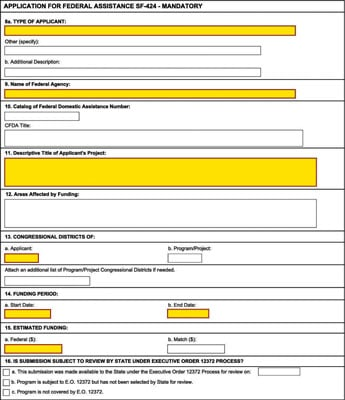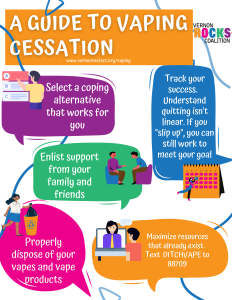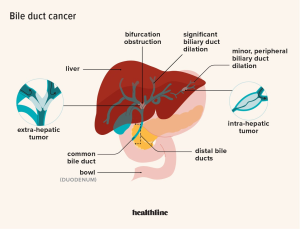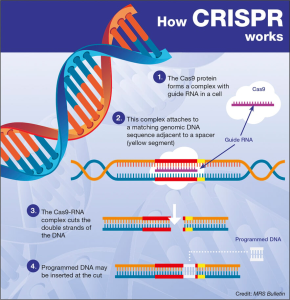
Federal grant applications play a pivotal role in facilitating groundbreaking research across various scientific disciplines, particularly in public health. For researchers like Karen Emmons and Jorge Chavarro, navigating the intricate NIH grant process is essential for securing health research funding that drives their investigations into cancer risk reduction and nutrition’s impact on human reproduction. Obtaining these grants not only validates their efforts but also empowers them to contribute to critical advancements in health and wellness. As funding landscapes evolve, the competition for these valuable resources intensifies, making the grant application process both daunting and rewarding. Ultimately, federal grants act as the lifeblood of innovation, enabling scientists to address pressing health challenges and improving community outcomes.
In the pursuit of scientific funding, many researchers must engage in governmental funding applications that support public health initiatives and innovative studies. These proposals are vital for enabling health researchers to explore significant issues, including cancer prevention strategies and the interactions between nutrition and reproductive health. The competitive nature of acquiring federal research dollars underscores the necessity for thorough planning, collaboration, and a comprehensive understanding of the funding landscape. Moreover, success in this arena not only relies on the quality of research ideas but also on the meticulous crafting of grant proposals, which can reflect the collective commitment to advancing health and scientific knowledge. Therefore, the process of securing federal resources is not just about funding; it’s about fostering a culture of scientific exploration that benefits society as a whole.
The Journey to Federal Grant Applications in Health Research
Securing federal grant applications is a monumental step for researchers in the realm of health science. It often marks a significant pivot from preliminary exploration to actualizing solutions that address pressing public health issues. For many researchers, the journey begins with foundational research or pilot studies that validate their hypotheses and prepare compelling proposals. According to Karen Emmons, whose work focuses on cancer risk reduction, these preliminary efforts are vital. They not only create a strong basis for grant applications but also demonstrate the potential impact of the study, thus making it appealing to funding bodies like the National Institutes of Health (NIH).
Moreover, the grant writing process demands a strategic approach and meticulous planning. Emmons emphasizes the importance of cultivating partnerships and networking within the research community. This collaborative mindset not only helps in avoiding redundant research but fosters an environment of innovation where novel ideas can thrive. In this context, federal grants do not merely fund projects; they act as catalysts that propel researchers toward impactful scientific contributions.
Impact of Funding on Cancer Risk Reduction Strategies
Federal grants significantly influence the development and implementation of cancer risk reduction strategies. Researchers like Karen Emmons dedicate their efforts to understanding the multilayered factors influencing cancer prevalence, especially among under-resourced communities. With adequate funding, they can conduct comprehensive studies that identify risk factors, evaluate preventive measures, and test innovative interventions. These projects ultimately aim to deliver evidence-based recommendations that empower communities with the knowledge and tools needed for better health outcomes.
Furthermore, funding is crucial for facilitating public health research that aligns with the broader goals of health promotion and disease prevention. Without the backing of federal grants, effective solutions could remain theoretical rather than applied. Emmons underscores the vital role that sustained funding plays in translating research findings into practical applications that address cancer risk at community levels. The ongoing commitment to funding these initiatives not only serves immediate public health needs but also strengthens long-term strategies to combat cancer across diverse populations.
Navigating the NIH Grant Process: Key Strategies for Success
The NIH grant process can be daunting, yet it is essential for advancing health research funded through federal grants. Researchers must be meticulous in their approach, beginning with the development of specific aims that clearly outline their study’s objectives and significance. Jorge Chavarro points out that the initial one-page statement sets the groundwork for an extensive application, which necessitates a thorough understanding of the existing literature and substantial preliminary data to prove the feasibility of their proposed studies. This foundational work is integral to creating a compelling narrative that resonates with reviewers.
Additionally, it is important for researchers to remain patient and persistent as they navigate the NIH grant process. The time-consuming nature of preparing applications can be a barrier for many. However, applicants benefit from learning how to effectively communicate their research value, adhere to requirements, and adapt based on previous feedback. This iterative nature of submission ensures that proposals are continually refined, ultimately enhancing the likelihood of securing the necessary funding for impactful projects.
Building Effective Partnerships in Health Research
Creating strong partnerships is a strategic advantage in securing federal grants for health research. Collaboration brings together diverse expertise and resources, amplifying the impact of research proposals. Emmons emphasizes that these relationships with community organizations and academic institutions enable researchers to better understand and address local health disparities. By grounding their research in community needs, scientists can write proposals that resonate with funding agencies focused on improving public health outcomes.
Additionally, collaborative partnerships can enhance the robustness of research projects, making them more appealing to reviewers. This inter-disciplinary approach combines insights from various fields—such as nutrition, epidemiology, and social sciences—resulting in comprehensive studies that address complex health issues like cancer risk reduction. The emphasis on collaboration underscores a growing recognition within public health research that tackling health challenges demands a cohesive effort across multiple sectors.
The Importance of Ethical Considerations in Research Proposals
Ethics play a crucial role in the preparation of grant proposals, particularly those involving human participants. Emmons highlights that adherence to ethical standards is not merely a requirement but an integral part of conducting responsible research. The NIH emphasizes that researchers must design studies that prioritize participant safety, informed consent, and data privacy. These ethical considerations not only protect participants but also enhance the credibility of the research, increasing the chances of funding approval.
Creating a comprehensive plan for ethical research practices can significantly enrich a grant application. By clearly outlining protocols for recruitment, consent, and data handling, researchers demonstrate their commitment to ethical standards. Reviewers are more likely to favor proposals that show a deep understanding of the ethical implications and actively address potential issues, fostering trust in the research process and its intended outcomes.
The Role of Pilot Studies in Grant Applications
Pilot studies serve as a vital component of federal grant applications, particularly in health research. They provide preliminary data that can validate research hypotheses and demonstrate feasibility, which is crucial for securing federal funds. Emmons explains that these studies are often necessary to illustrate how proposed interventions will work in real-world settings, especially in addressing cancer risk factors in diverse populations. Pilot projects allow researchers to refine their methodologies before embarking on larger, more expensive trials.
Additionally, the insights gained from pilot studies support the justification of budget allocations and the necessity for specific resources in grant proposals. Researchers can showcase preliminary success or outline challenges overcome, creating a narrative that resonates with funding agencies looking for innovative, evidence-based solutions. This iterative process not only strengthens the application but also positively impacts the overall efficacy of public health interventions.
Understanding Budgeting in Grant Writing
Budgeting is a crucial aspect of grant writing, as it directly influences the feasibility and sustainability of a research project. Emphasizing this point, Chavarro notes that every expenditure listed needs to be justified, making it clear why specific resources are essential for achieving the proposed objectives. Researchers are often challenged to optimize their budgets while demonstrating the significance of their studies, especially when costs are rising faster than funding rates.
An effective budget not only outlines necessary expenses but also reflects a researcher’s strategic planning capabilities. Clear justifications for each item—inclusive of new equipment or personnel—are vital elements that reviewers closely scrutinize. By ensuring that every line item serves a purpose and is clearly articulated, applicants can strengthen their proposals and enhance the likelihood of obtaining funding, crucial for driving forward potentially groundbreaking research.
Adapting to Changes in Federal Research Funding Landscape
The landscape of federal research funding is constantly evolving, influenced by political decisions and shifts in public health priorities. Emmons notes recent challenges faced by researchers due to funding freezes and the implications these changes have on ongoing projects. As funding bodies adapt their strategies to address national health crises or emergent trends, researchers must be agile and responsive in their grant applications to align with these evolving priorities.
Researchers must be proactive in monitoring these shifts and adjusting their proposals accordingly. By identifying emerging areas of interest or addressing gaps in current public health efforts, researchers can position themselves favorably under new funding initiatives. This adaptability not only showcases the relevance of their research but also emphasizes their commitment to addressing the most pressing health challenges of the time, ultimately enhancing their prospects of securing competitive grants.
The Competitive Nature of Federal Health Research Grants
Understanding the competitive nature of federal health research grants is vital for applicants. With fluctuating success rates, especially noted by Emmons and Chavarro, researchers often face intense competition for limited funding. For instance, the National Cancer Institute reported a mere 14.6 percent success rate for the most common type of grant, indicating that many proposals, regardless of merit, may go unfunded. This reality underscores the necessity for meticulous preparation and distinctive proposals that articulate innovative approaches and significant potential impacts.
To thrive in this competitive environment, researchers need to differentiate their proposals by highlighting unique methodologies, previous successes, and a clear plan for community engagement. They must articulate not only what they propose but also how it aligns with national health objectives and addresses unmet needs in public health. This comprehensive understanding of the competitive landscape allows researchers to craft more persuasive applications that resonate with reviewers, thereby enhancing their chances of securing essential funding.
Frequently Asked Questions
What are federal grant applications and why are they important for health research funding?
Federal grant applications are formal requests submitted by researchers to government agencies for financial support to conduct scientific studies, especially in the sphere of health research funding. These applications are crucial as they enable researchers to secure resources necessary for innovative projects, such as those aimed at cancer risk reduction and public health research.
How does the NIH grant process work for public health research initiatives?
The NIH grant process involves several stages, including idea development, proposal writing, and rigorous peer review. Researchers must first establish a compelling research question and demonstrate the innovation and significance of their work. Applications are rigorously assessed by Scientific Review Groups to ensure only the most valuable projects receive funding.
What challenges do researchers face when applying for federal grants related to cancer risk reduction?
Researchers applying for federal grants for cancer risk reduction often encounter challenges such as stringent application requirements, a competitive funding environment, and the need for extensive preliminary data. The process demands detailed methodologies and justifications for budgets, which can be demanding and time-consuming.
What steps should I take to prepare a successful federal grant application for public health research?
To prepare a successful federal grant application for public health research, begin by identifying a relevant and innovative research question. Cultivate partnerships with community organizations, thoroughly review current studies, and ensure your proposal highlights the significance and impact of your research. Additionally, writing a detailed budget and allowing ample time for revisions can significantly enhance your application.
How does the competition for NIH grants impact research in nutrition and human reproduction?
The competition for NIH grants in areas like nutrition and human reproduction is intense, with only a fraction of applications receiving funding. This competitive landscape pushes researchers to present unique and scientifically sound proposals that align with NIH priorities, ultimately fostering innovation within the field.
What are the success rates for federal grant applications in health research?
Success rates for federal grant applications in health research vary by institute. For instance, in 2023, the National Cancer Institute reported a 14.6% success rate for the popular R01 grant type. This low percentage underlines the competitive nature of securing funding and the importance of robust and well-prepared grant applications.
What role do peer review processes play in the federal grant application process?
Peer review processes are essential in the federal grant application process as they assess the scientific quality and potential impact of proposals. These reviews help ensure that only the most innovative and effective public health research projects receive federal funding, maintaining a high standard in scientific inquiry.
Why is it important to justify the budget in a federal grant application?
Justifying the budget in a federal grant application is crucial because it provides a rationale for the funding requested. Researchers must demonstrate the necessity of each budget item, including equipment and materials, to convince reviewers that the requested resources will effectively support their research objectives.
What resources are available to assist with federal grant application planning and writing for health researchers?
Various resources are available to assist health researchers with federal grant application planning and writing, including workshops, grant writing courses, and mentorship programs offered by universities. Additionally, the NIH website provides comprehensive guidance and resources tailored for grant applicants.
How can feedback from unsuccessful federal grant applications improve future proposals for health research projects?
Feedback from unsuccessful federal grant applications is invaluable as it highlights areas that need improvement, such as study design, methodology, or clarity of proposal objectives. Researchers can refine their proposals based on this constructive criticism, increasing the likelihood of success in future submissions.
| Key Points |
|---|
| Importance of Federal Grants |
| Can significantly advance public health research. |
| Personal Experiences of Researchers |
| Karen Emmons recalls receiving her first grant as a defining moment. |
| Impact of Funding Interruptions |
| Recent freezes on funding disrupt critical research initiatives. |
| The Application Process |
| Complex and detailed, often taking months to prepare and submit. |
| Scientific Review and Funding Success Rates |
| Success rates for obtaining grants are quite low, approximately 14.6% for some types. |
| Long-term Commitment to Research |
| The government’s support is crucial for advancing health outcomes and scientific progress. |
Summary
Federal grant applications play a vital role in advancing health research and ensuring that significant public health initiatives receive necessary funding. By securing federal grants, researchers like Karen Emmons and Jorge Chavarro can conduct innovative studies that contribute to the betterment of health in communities. However, the application process is lengthy, competitive, and often impacted by external factors such as policy changes that could hinder funding opportunities. Navigating the complexities of grant applications is essential for researchers wishing to make a meaningful impact in their fields.



